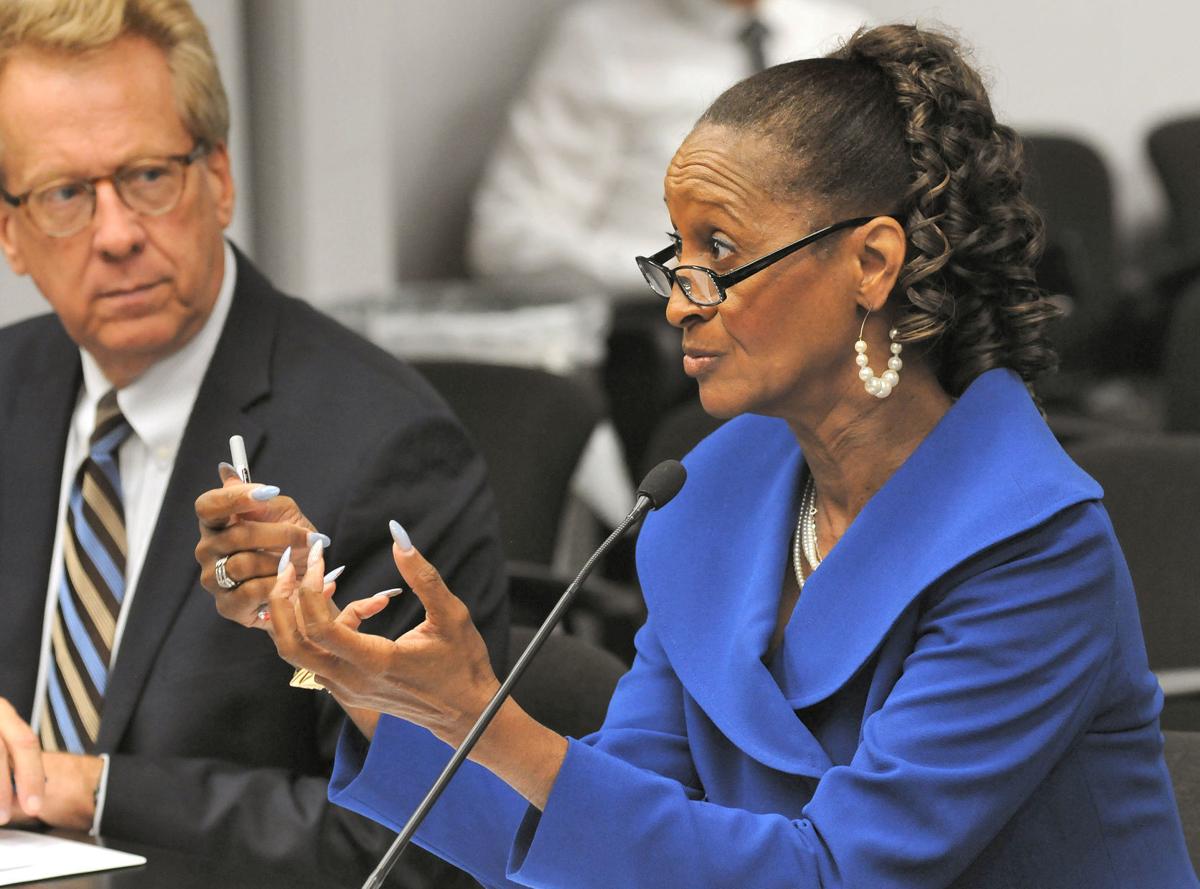PHOENIX т State utility regulators ratcheted up their demand for answers from the head of УлшжжБВЅ Public Service, providing a list of their first 67 questions.
In a formal request late Friday, all five members of the УлшжжБВЅ Corporation Commission said they have set aside the afternoon of Aug. 7 for Don Brandt to explain to them the policies that тcontributed to the deathsт of three APS ratepayers.
APS, the stateтs largest electric utility, acknowledged recently that it settled claims with the survivors of two customers who were found dead in their homes after their power was turned off.
The two are in addition to the death last year of 72-year-old Sun City West resident Stephanie Pullman after her APS power was cut off. The death certificate said she had preexisting conditions exacerbated by the temperature in her house.
People are also reading…
Commissioners also told Brandt he can bring along тappropriate APS executives and employees to assist you in your responses.т
At this point, though, company officials have said no decision has been made whether Brandt himself will testify.
Commissioners have left the door open to a formal subpoena if he does not show. And if he ignores that, it could lead to sanctions against the company.
The request to hear from Brandt is not a surprise. Regulators expressed similar sentiments earlier this month.
But of note is the level of detail they want from him about what happened, not only what happened to Pullman but also in the two other cases т the customersт names were not released т where the utility settled with survivors.
At the very least, regulators want to know whether those settlements were paid with dollars collected from ratepayers.
A lot of the questions come down to what APS does when a customer is late on payments to educate them about assistance options and repayment plans.
According to the commission, the utility said it put a тdoor hangerт at Pullmanтs residence on Sept. 5, 2018, and disconnected her power two days later.
тThis would not have given Ms. Pullman enough time to mail in a payment even if she responded immediately to the notification,т the commissioners said in their questions.
The prior month, APS accepted payment from her six days after a similar notification without disconnecting power.
тWhy was there a discrepancy in policy between August and September?т the commissioners want to know. тIsnтt it reasonable to assume Ms. Pullman felt she may have had additional time to respond to the most recent door hanger based on historical precedent?т
The commissioners say their rules require a utility to тmake a personal visit to the premisesт prior to disconnection.
The utility has said that was done by a third-party contractor. But that answer has not satisfied the regulators.
тDid they knock on the door?т the commissioners want Brandt to tell them. тDid they initiate conversation? Does the company believe that hanging a door hanger is sufficient to satisfy this requirement?т
Then thereтs the fact that she, or someone on her behalf, had paid $125 toward her bill, $51 short of the full amount, yet the power was disconnected just two days later.
тIs that typical?т the commissioners want to know. тWas there any attempt to notify Pullman that the payment would not satisfy her bill and would not forestall the disconnection of her power?т
They also are asking whether Pullmanтs bill was higher or lower than it was before regulators approved allowing the utility to collect another $95 million from customers.
For the moment, there should be no additional disconnections.
The commission approved an emergency rule barring utilities from cutting off customers between June 1 and Oct. 15 while they consider a more permanent change in the regulations.
On a more generic level, regulators want Brandt to discuss the companyтs disconnection policies, how much time customers are given to try to pay down their bill, how the company typically responds to partial payments of delinquent bills, and how many customers made partial payments and still were disconnected.
APS has said there were more than 110,000 disconnections in 2018, though they said some of these were duplicates at the same residence.
УлшжжБВЅ Electric Power Co. reported it disconnected customers 15,398 times in 2018, but the utility has not had any complaints, lawsuits or settlements involving the death of a customer whose power was disconnected, spokesman Joe Barrios said.





















